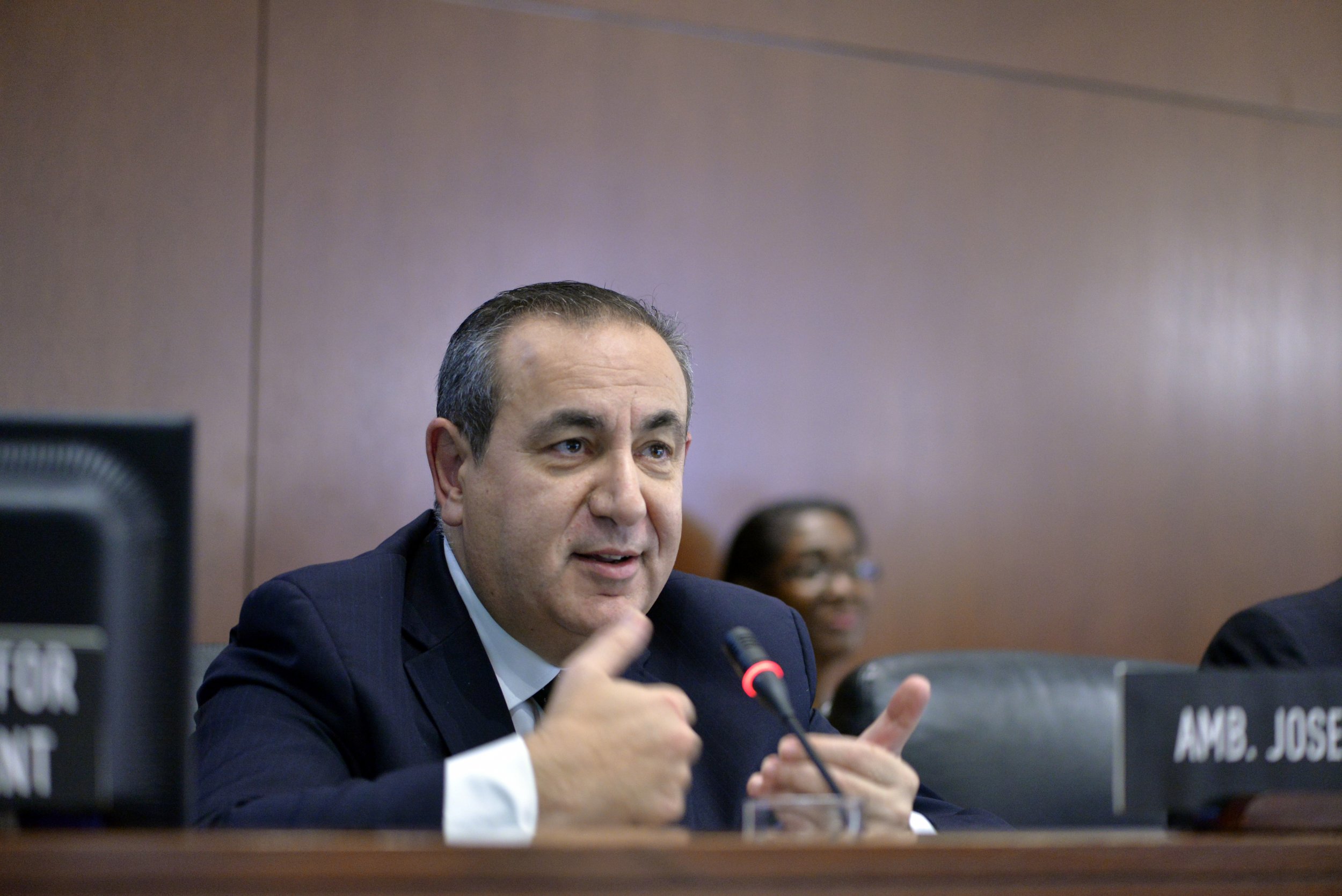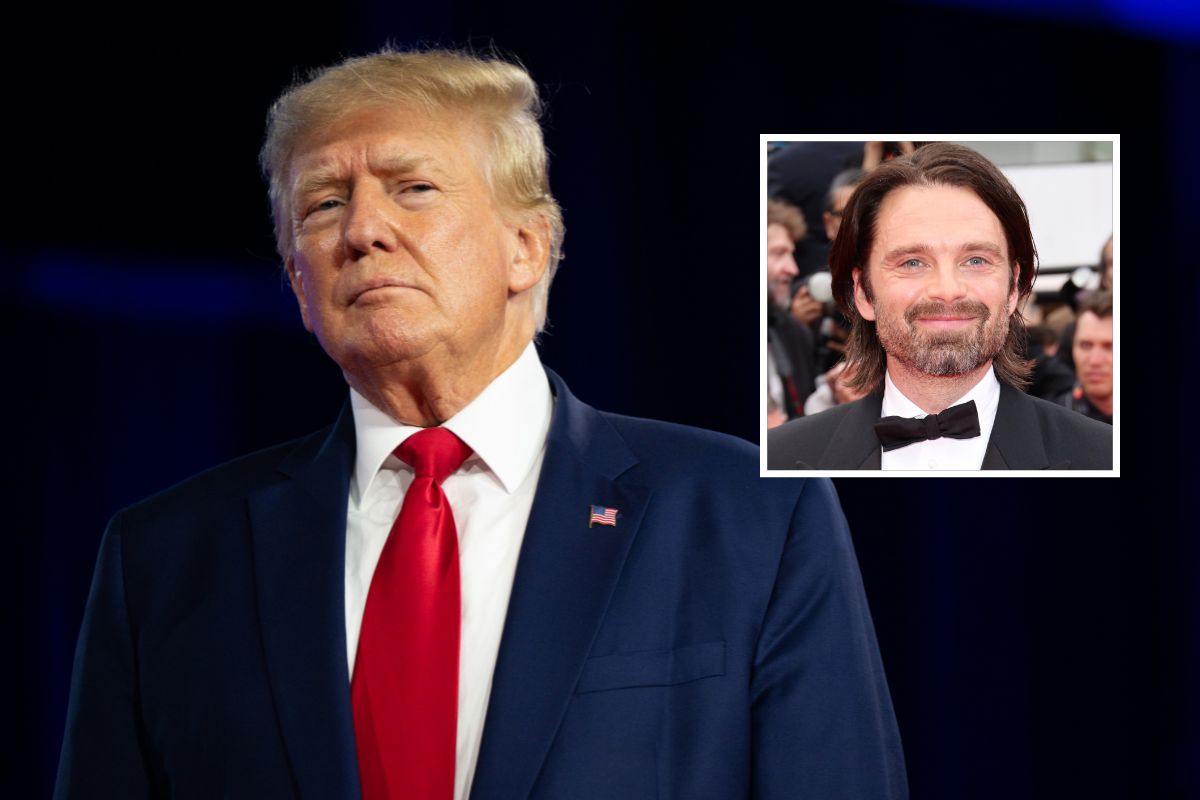
Updated | Within two weeks of joining Donald Trump's presidential campaign, George Papadopoulos met a professor while traveling in Italy. Their encounter took place on March 14, 2016, after Trump had named Papadopoulos a foreign policy adviser earlier that month. The London-based professor apparently told Papadopoulos he had ties to Russian officials, and over the next weeks and months, the adviser spoke with campaign leaders about arranging a meeting with those officials.
On October 5, Papadopoulos pleaded guilty to lying to federal agents about his communications with the professor and other foreign nationals, according to documents that the Department of Justice special counsel released on Monday. The documents do not name the professor, but The Washington Post identified him on Monday night as Joseph Mifsud. He later confirmed to The Telegraph that he is the academic mentioned in the documents, but he said he did nothing wrong. Citing a Senate aide with knowledge of emails about Mifsud, The New York Times further confirmed on Tuesday that he is the professor in the case.
Related: Who is George Papadopoulos?
According to the court documents, the professor became interested in Papadopoulos after the latter told the academic about his involvement in the Trump campaign. The interest was mutual, the documents say, because Papadopoulos thought the professor had ties to top Russian officials. The professor introduced him to a Russian woman who he said was a relative of Russian President Vladimir Putin, and to a man who he said was connected to the Russian Ministry of Foreign Affairs.
Papadopoulos told FBI agents in January that the professor also told him he had "dirt" on Hillary Clinton, consisting of thousands of emails. Though Papadopoulos told the agents that the professor was "a nothing," he "repeatedly sought to use the professor's Russian connections in an effort to arrange a meeting between the campaign and Russian government officials," the documents say. Following their Italy meeting, the two continued communicating and met in London that April.
As of March 2016, Mifsud was the honorary director of the London Academy of Diplomacy, located at the University of Stirling, according to the most recent cached version of an online biography. (The webpage was down on Monday afternoon and Tuesday morning.) He is the former president of the Slovenia-based Euro-Mediterranean University, also known as EMUNI University, and he was a professor at the University of Stirling in Scotland and the University of East Anglia in England, according to the biography. He apparently specialized in "international relations, public administration and management, public-private partnerships, diplomacy and Euro-Mediterranean studies."
A spokesperson for the University of Stirling has told multiple press outlets that Mifsud is currently a full-time teaching fellow in the politics department there.
He previously served in Malta's ministry of foreign affairs and, in the 1990s, as chief adviser to that country's ministry of education. He helped Malta enter the European Union, the biography said. Despite the apparent secrecy around his connection to Papadopoulos, he has given many interviews, a number of which appear on YouTube.
Mifsud told the Telegraph, "I have a clear conscience." But he conceded that he had been in touch with Papadopoulos and that he introduced the former Trump adviser to the director of a Russian think tank, and that he offered to link him with experts connected to the European Union. He said that the conversation about his offering "dirt" on Clinton did not happen as the documents described. He also disputed that he had introduced Papadopoulos to a woman who he described as a relative of Putin's. The professor called the claims "incredible."
The Telegraph did not name the think tank. But the Moscow-based Valdai Discussion Club, a think tank whose website says it "aims to promote dialogue of Russian and international intellectual elites," lists Mifsud as an expert. Valdai was founded in part by the Russian International Affairs Council, a nonprofit that the Russian government started in 2010. Each year, participants in the club's annual meetings gather with Putin.
Mifsud had previously told the Post, in August, that he had "absolutely no contact with the Russian government." He added that he was an academic, and that his connections to Russia were academic in nature. The Post also could not reach him on Monday. Newsweek also could not reach him.
Nabil Ayad, who the Times of Malta described on Tuesday as a former employer of Mifsud, told that outlet, "He knew a number of top Russian officials because of these [academic] contacts. He has been involved in education for a considerable time. However, I am sure that there was nothing sinister about his contacts and that he may have naively been drawn into this affair."
But Naveed Jamali, who specialized in Russian military intelligence as a double agent for the FBI, said the documents suggest that the Russians were trying to turn Papadopoulos into "an operational asset." "The goal is to make you believe that [your] idea is in fact an idea that you thought up yourself," he said. "It is straight-up manipulation." (Newsweek has published work by Jamali.)
If Mifsud is the professor in the documents, he could find himself a subject in the special counsel probe. In an October 3 court filing, a lawyer for the special counsel wrote, "The government will very shortly seek, among other investigative steps, to interview certain individuals who may have knowledge of contacts between Russian nationals (or Russia-connected foreign nationals) and the campaign, including the contacts between the defendant and foreign nationals set forth in the statement of offense."
In July, authorities arrested Papadopoulos, who was 30 as of early October, for his false statements to federal agents. He has pleaded guilty and his sentencing will take place in January or later. He faces up to five years in prison and a $250,000 fine, though prosecutors estimated he would likely face zero to six months and pay between $500 and $9,000. He did not respond to a request for comment.
Jeff Stein contributed to this report.
Correction: This article previously incorrectly stated that the London Academy of Diplomacy is affiliated with the University of Westminster. It is affiliated with the University of Stirling.
Uncommon Knowledge
Newsweek is committed to challenging conventional wisdom and finding connections in the search for common ground.
Newsweek is committed to challenging conventional wisdom and finding connections in the search for common ground.
About the writer
Max Kutner is a senior writer at Newsweek, where he covers politics and general interest news. He specializes in stories ... Read more





